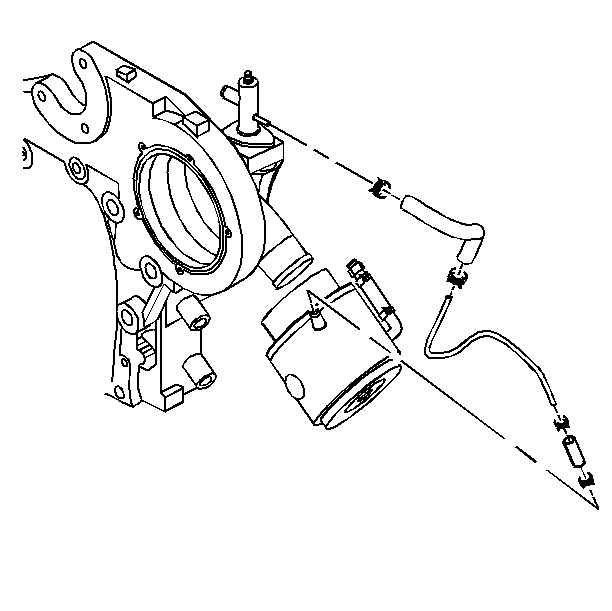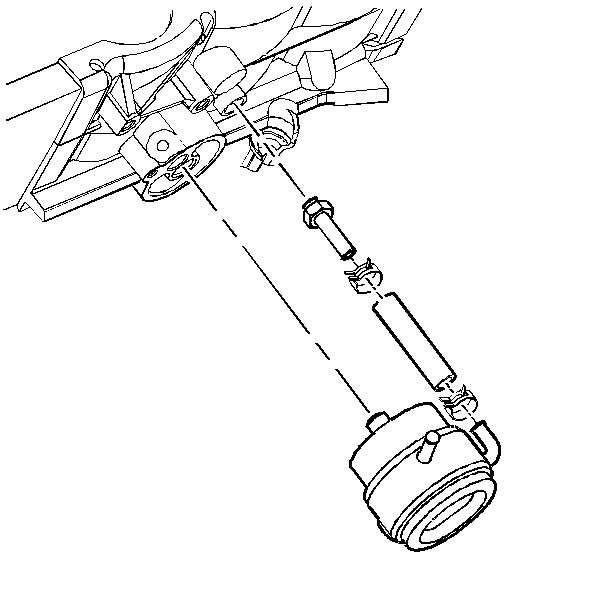Removal Procedure
- Drain the cooling system. Refer to Cooling and Radiator.
- Raise the vehicle. Support the vehicle suitably. Refer to Vehicle Support in General Information.
- Place the drain pan under the engine in order to catch any fluid that may drain.
- Remove the oil filter.
- Remove the knock sensor electrical connector.
- Remove the outlet hose. Position the outlet hose aside.
- Remove the inlet hose. Position the inlet hose aside.
- Remove the connector.
- Remove the oil cooler.
- Clean the engine block mating surface.

Installation Procedure
- Install the oil cooler.
- Install the connector.
- Install the inlet hose with the clamp.
- Install the outlet hose with the clamp.
- Install the knock sensor electrical connector.
- Install the oil filter. Lubricate the seal with engine oil.
- Lower the vehicle.
- Refill the cooling system. Refer to Draining and Filling in Cooling and Radiator.
- Add engine oil as necessary.
- Inspect the oil cooler for leaks.
Ensure that the seal is in place. Coat the seal with engine oil.
Tighten
Tighten the connector to 50 N·m (37 lb ft).
Refer to
Notice: Use the correct fastener in the correct location. Replacement fasteners must be the correct part number for that application. Fasteners requiring replacement or fasteners requiring the use of thread locking compound or sealant are identified in the service procedure. Do not use paints, lubricants, or corrosion inhibitors on fasteners or fastener joint surfaces unless specified. These coatings affect fastener torque and joint clamping force and may damage the fastener. Use the correct tightening sequence and specifications when installing fasteners in order to avoid damage to parts and systems.
.
Tighten
Hand tighten the filter to 13 N·m (115 lb in).
